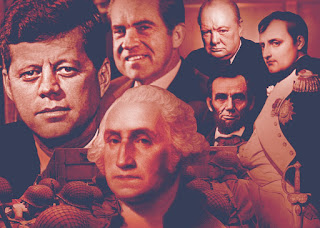We were noting the other day the number of women writers and historians in our year end roundup of notable books and authors. Just to keep us in line, however, the American online magazine Slate has published a quantitative analysis of the domination of male authors in American trade-book/popular historical publishing.
As academic history has taken a turn toward the cultural and social, producing more and more works about women, minorities, and everyday life, the kinds of history books you see on the New Releases table at a Barnes & Noble have begun to feel like throwbacks. A quick survey reveals naval battles, grand adventures, and biography after biography about the Founding Fathers. Call these “uncle books”—tomes that you give an older male relative, to take up residence by his wingback armchair.Having maybe written an "uncle book" or two (and some of the cultural/social kind too), I'm a little sensitive to this. Still, my confederation book published a couple of decades ago, far from being part of a flood of Canadian Founding Fathers books to match the American one, was pretty much the first on the subject in about
The Slate article by Rebecca Onion continues with impressive numbers:
We examined a set of 614 works of popular history from 80 houses, which either published books we defined as trade history or landed books we defined as trade history on the New York Times Combined Print & E-Book Nonfiction best-seller list in 2015. ... We found that 75.8 percent of the total titles had male authors. Interestingly, the effect was slightly less pronounced among titles that made the New York Times best-seller list—but only slightly (70.4 percent of those authors were male). University press and trade imprints had roughly the same proportion of male to female authors.The whole article is worth attention as there is a lot of detail and qualification, and a startling graphic presentation of the data -- that does not copy well.
Image: from Slate
